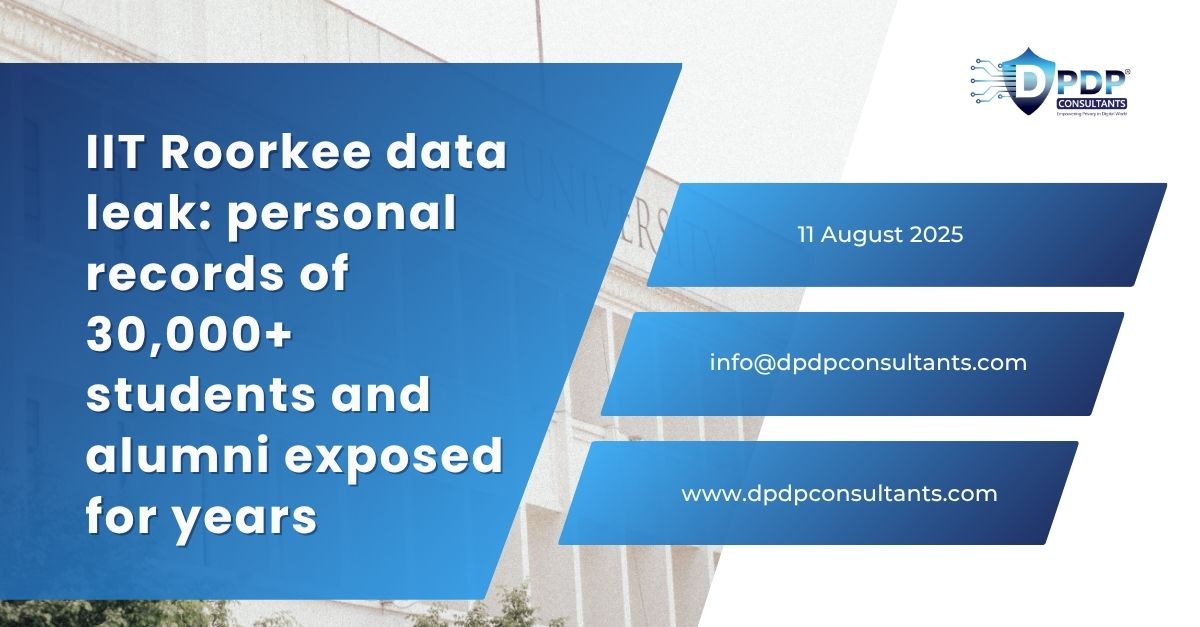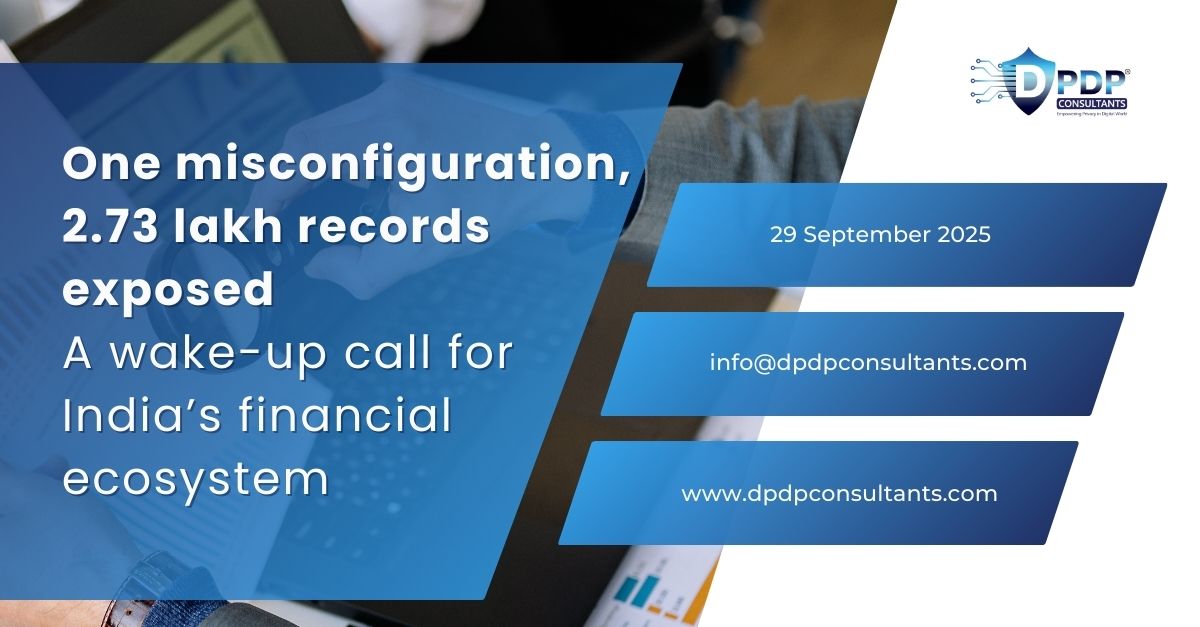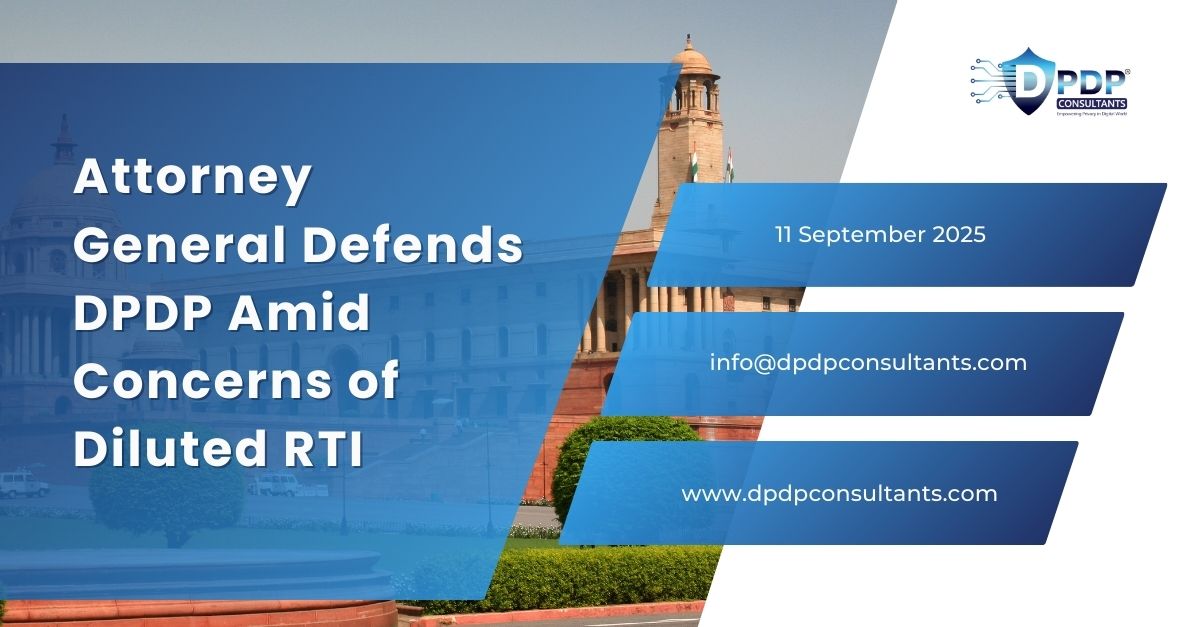A startling privacy lapse at one of India’s oldest
engineering institutes has put thousands of alumni and former students at risk.
Personal records relating to more than 30,000 students and alumni —
including mobile numbers, email addresses, photographs, caste category and financial
background details — were found publicly accessible on a website that appears
to have been running for years, the Times of India reported. The Times of India
According to the report, the searchable site let anyone pull
up a record simply by entering a student’s enrolment number — a detail that,
investigators say, strongly suggests the information was taken from
IIT-Roorkee’s academic affairs records rather than voluntarily published
material. When the newspaper alerted the institute, IIT-Roorkee ordered an
internal inquiry and asked the deans of academic affairs and student welfare to
investigate. The Times of India
Why this matters (and fast)
The presence of caste and financial background fields makes this more than a
run-of-the-mill exposure of names and emails. In India, those attributes are
deeply sensitive: they can be weaponised for targeted scams, discrimination,
harassment or doxxing — and they materially increase the risk of identity fraud
or social harm if combined with contact and photograph data. The DPDP Act —
India’s national law governing digital personal data — requires data
fiduciaries to adopt “reasonable security safeguards” to protect personal data
in their control. meity.gov.in
Practical and regulatory pressure is mounting: under the Act
data fiduciaries are expected to notify the Data Protection Board and affected
individuals about personal-data breaches, and draft rules circulated earlier
this year set out specific reporting formats and timelines. Even though some
implementation details of the new regime are still being ironed out, the
direction is clear — organisations that hold personal data are going to be held
responsible for failing to secure it. DLA Piper Data Protection The Economic
Times
How do exposures like this happen?
Security researchers and incident reports show the usual culprits:
misconfigured cloud storage (public S3 buckets), unsecured search engines and
databases (for example exposed Elasticsearch instances), or legacy web
front-ends that pull data from internal systems without access controls. These
configuration errors can leave entire archives searchable on the open web for
months — sometimes years — before they are discovered. That pattern appears
consistent with IIT-Roorkee’s case, where older records were reportedly still
being updated on a public site. Qualys WIRED
The stakes for individuals
When phone numbers, email addresses and demographic details leak together, they
fuel a host of secondary harms: credential stuffing, phishing and SIM-swap
attacks aimed at financial accounts, targeted social-engineering scams, and
even offline harassment. India has seen a sharp rise in phishing and financial
fraud in recent years, which makes such exposures particularly hazardous for
affected people. Business Standard Kaspersky
What IIT-Roorkee (and similar institutions) should do now
- Containment:
Take the site offline immediately and preserve logs for a forensic audit.
- Forensics:
appoint independent incident responders to confirm the scope — which
records were exposed, when, and by what mechanism.
- Notification:
inform the Data Protection Board (as required) and communicate clearly to
affected alumni/students about which fields were exposed and what the
institute is doing to help.
- Remediation:
fix the underlying access control/configuration failures, rotate
credentials and strengthen authentication on all internal systems and
vendor integrations.
- Longer
term: publish a remediation timeline, offer targeted support (for example,
guidance or monitoring services), and run a comprehensive security audit
across the institute’s digital estate. These are standard steps
recommended under India’s data-protection guidance and the draft rules
prepared for breach reporting and remediation. DLA Piper Data Protection meity.gov.in
What affected alumni and students should do
Assume you may be impacted and act quickly: change passwords on accounts that
reuse institutional credentials, enable multi-factor authentication, monitor
bank and payment accounts, be extra cautious with unsolicited calls or
messages, and consider a fraud/freeze alert with your bank or credit provider
if available. If you spot suspicious financial activity, report it immediately
to your bank and local police (file an FIR if needed). Official guidance from
cybersecurity authorities and consumer-protection bodies recommends these exact
steps after a breach. Kaspersky AP News
Bigger picture: even top institutions are vulnerable
IIT-Roorkee’s standing and long history (founded in 1847) make this episode a
sharp reminder: prestige does not equal invulnerability. Universities and
colleges hold some of the most sensitive personal and demographic data of their
communities, yet many run legacy systems or third-party integrations that were
not built with modern access controls. The incident should be a wake-up call
for higher-education institutions nationwide to prioritise data-security
governance and transparency. The Times of India Up Guard
For now, the questions are straightforward: how quickly will
IIT-Roorkee identify the root cause, how many records were truly exposed, and
what protections will the institute offer affected people? Until those answers
— and an independent audit — are public, alumni and students should assume the
worst and take basic safeguards immediately.
IIT Roorkee Data Breach: Personal details of 30,000
students, alumni exposed online for years; caste, finances, contact details at
risk | Dehradun News - Times of India
A significant data privacy lapse at IIT-Roorkee has exposed
the personal information of over 30,000 students and alumni on a public website
for years.
Stay with us for updates on: DPDP
Consultants Newsletter





